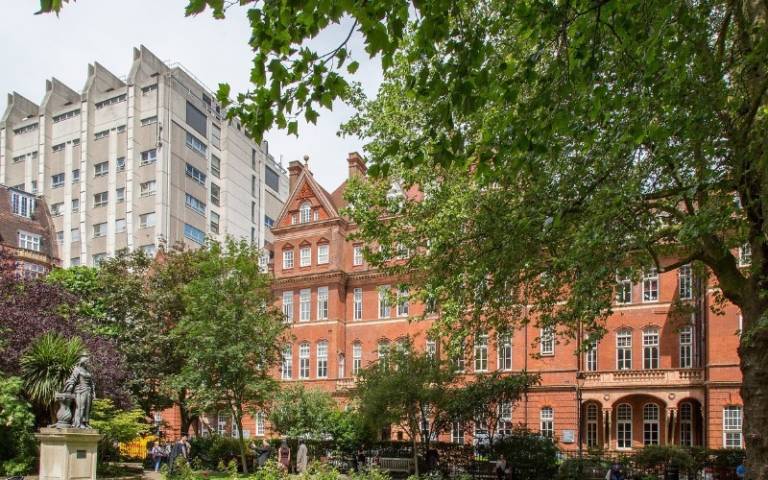Covid-19: UCL pilots virtual rehabilitation for discharged stroke patients
3 April 2020
Brain injury and stroke patients being discharged from hospital earlier than normal, due to the coronavirus pandemic, will receive virtual rehabilitation at home, as part of an innovative pilot study led by UCL and supported by the charity SameYou.

As a result of the global crisis, critical care beds across the country, including those in specialist neurological hospitals, are being freed up to care for Covid-19 patients.
This means brain injury and stroke patients, who might typically spend six weeks in hospital to recover and rehabilitate, are being discharged back home in less than two weeks. This is to make beds available and to also protect these often elderly and/or vulnerable patients, who might be at heightened risk of infection by Covid-19.
Due to the current crisis, community rehabilitation teams are less able to do home visits, so to ensure patients continue to receive high quality support, the UCLP Centre for Neurorehabilitation, who work alongside the UCLH National Hospital for Neurology and Neurosurgery (NHNN), plan to deliver all stroke rehabilitation remotely, covering both emotional and physical recovery.
With the support of dedicated fundraising by SameYou, the team led by UCL’s Professor Nick Ward with the support of UCLH, are repurposing a web portal to deliver innovative virtual group sessions (up to 20 people) into homes via laptops/tablets and smartphones. Via the portal, sessions will be timetabled and patients will be invited to take part.
The sessions, led by trained therapists, will cover physiotherapy, occupational therapy, speech and language therapy, cognitive strategy, fatigue management and emotional support. Further options for virtual rehabilitation include one-to-one video consultations, use of existing accredited apps, such as my.therappy.co.uk and orcha.co.uk, and exercise videos downloaded to video sharing websites, such as YouTube.
Professor Nick Ward (UCL Queen Square Institute of Neurology) said: “The coronavirus pandemic means people with stroke and brain injuries will be living back at home much earlier than normal: we will have a large population of vulnerable patients in the community, who need support.
“Ordinarily rehabilitation teams would visit patients at home, however due to Covid-19 this cannot happen, so we want to use virtual technologies to ensure good levels of care can still be provided.
“This funding will enable us to pilot a project, which uses existing technologies such as WhatsApp or Zoom, to get essential rehabilitation into people’s homes. We will set up virtual rehabilitation and support groups and to provide both emotional and physical support – helping them adjust to what’s happened.”
SameYou, the charity set up by Game of Thrones actress Emilia Clarke, has launched an appeal to help brain and stroke injury patients receive recovery therapies at home during the pandemic.
The money will be donated to help UCLP Centre for Neurorehabilitation, based at UCL Queen Square Institute of Neurology, along with the Spaulding Rehabilitation Hospital Boston, based in the US. All donations will fund virtual therapy clinics, enabling rehabilitation therapists to keep in touch with patients and provide the essential help post-acute stroke and brain injury patients need.
Emilia Clarke said: “For people who’ve had brain injuries and strokes, rehabilitation and recovery is often the forgotten part of care – but it’s a vital part of recovery.
“At the moment patients who are leaving hospitals early, will be lost without the expert help and care of teams like those at UCL, which is why this virtual rehabilitation project could be so valuable.
“It’s a chance to deliver something new, while other patients affected by coronavirus are rightly being given the care and support they need in hospitals"
The UCL pilot project is also supported by NHS England guidelines, which recommend delivering community rehabilitation remotely using technology. To raise money for this pilot project SameYou have set up a JustGiving page. Donations can be made here: Covid-19: SameYou Emergency Response for Brain Injury & Stroke Patients
Links
- UCLP Centre for Neurorehabilitation
- SameYou
- Professor Nick Ward’s academic profile
- UCLH National Hospital for Neurology and Neurosurgery
 Close
Close

